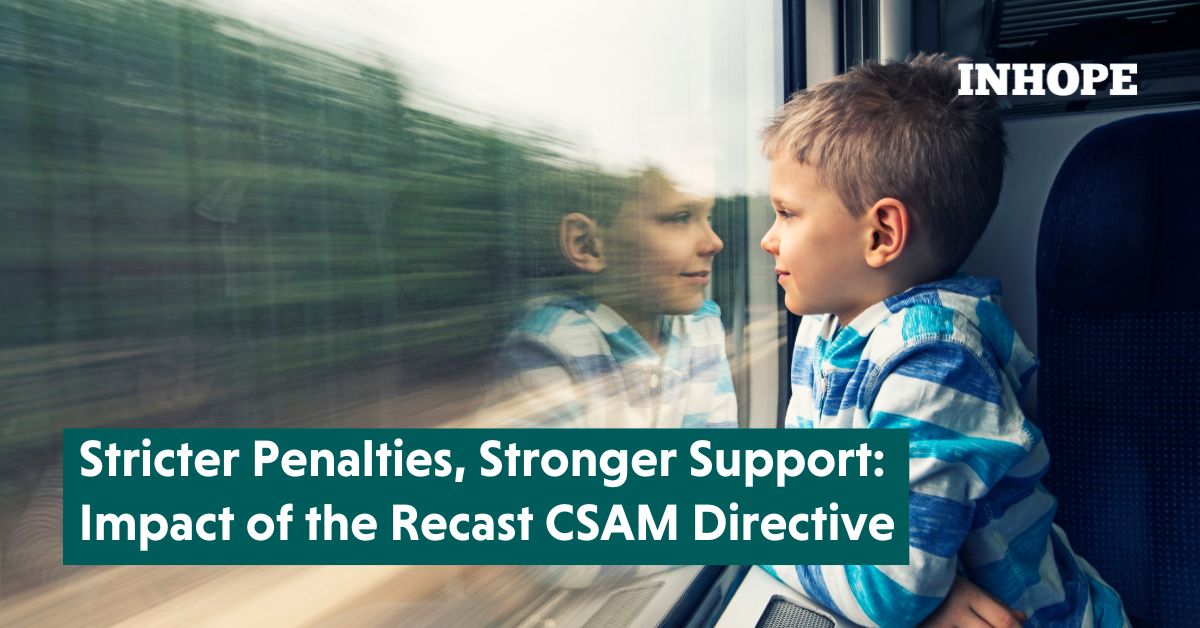Article
Industry News & Trends
Educational Articles
Stricter Penalties, Stronger Support: Impact of the Recast CSAM Directive
In a landmark step towards safeguarding children, the European Commission has adopted a draft proposal of the child sexual abuse material (CSAM) Directive.
With the goal to enhance and expand the criminal law rules concerning child sexual abuse and exploitation, the recast Directive includes measures such as broadening definitions of offences, introducing stricter penalties for perpetrators, enhancing support for victims of child sexual abuse and establishing a firm legal basis for the operation of hotlines in EU Member States.
A Proactive Prevention Approach
One of the key objectives of the Directive is a proactive approach to prevention. The updated draft will require EU Member States to implement preventative measures in high-risk settings such as schools, hospitals, social care services, sports clubs or religious communities. These measures include:
- Creating safe spaces for reporting
- Establishing clear accountability mechanisms for staff working with or close to children.
- Dedicated training and awareness raising activities for staff working in these settings
- Mandating professionals working with children to report suspected instances of child sexual abuse.
The future EU Centre (as outlined in the CSAM Regulation) will be responsible for encouraging dialogue and cooperation between relevant stakeholders to facilitate the development of prevention programmes. The goal for the EU Centre to cooperate with Member States to establish a EU-wide standard of data collection on child sexual abuse and exploitation to support evidence-based policy on prevention and assistance to victims.
Stricter Penalties, Stronger Support
The Recast Directive urges countries in the EU to impose stricter punishments for those who commit sexual crimes against children, especially those who use online platforms for abuse. It broadens the definition of child sexual abuse material (CSAM) to include 'pedophile manuals' and AI-generated content. By addressing these digital challenges, the EU aims to help Member States prevent and combat these crimes more effectively.
Additionally, the Directive requires EU countries to provide better support for abuse victims by:
- mandating tailored services for child victims, such as medical care, emotional support, and education.
- extending the time limit for prosecution (statute of limitations) within the EU to give victims more time to seek justice.
- facilitating information-sharing and best practices among Member States through the new EU Centre to ensure victims receive adequate assistance across the Union.
A Collaborative Effort
A key takeaway from this revision is the focus on cross-border cooperation, which is crucial to fostering partnerships between law enforcement, hotlines and industry partners across the EU. These changes comprehensively address the multifaceted, international challenges posed by online child sexual abuse and exploitation.
For EU hotlines, the recast Directive holds profounds implications. It recognises the critical role of hotlines in the removal of CSAM and establishes a firm legal basis for their cooperation across the Union. By fostering enhanced cross-border cooperation hotlines will become even more effective in their mission to protect children online.
How does the Recast Directive empower hotlines? Click here.
